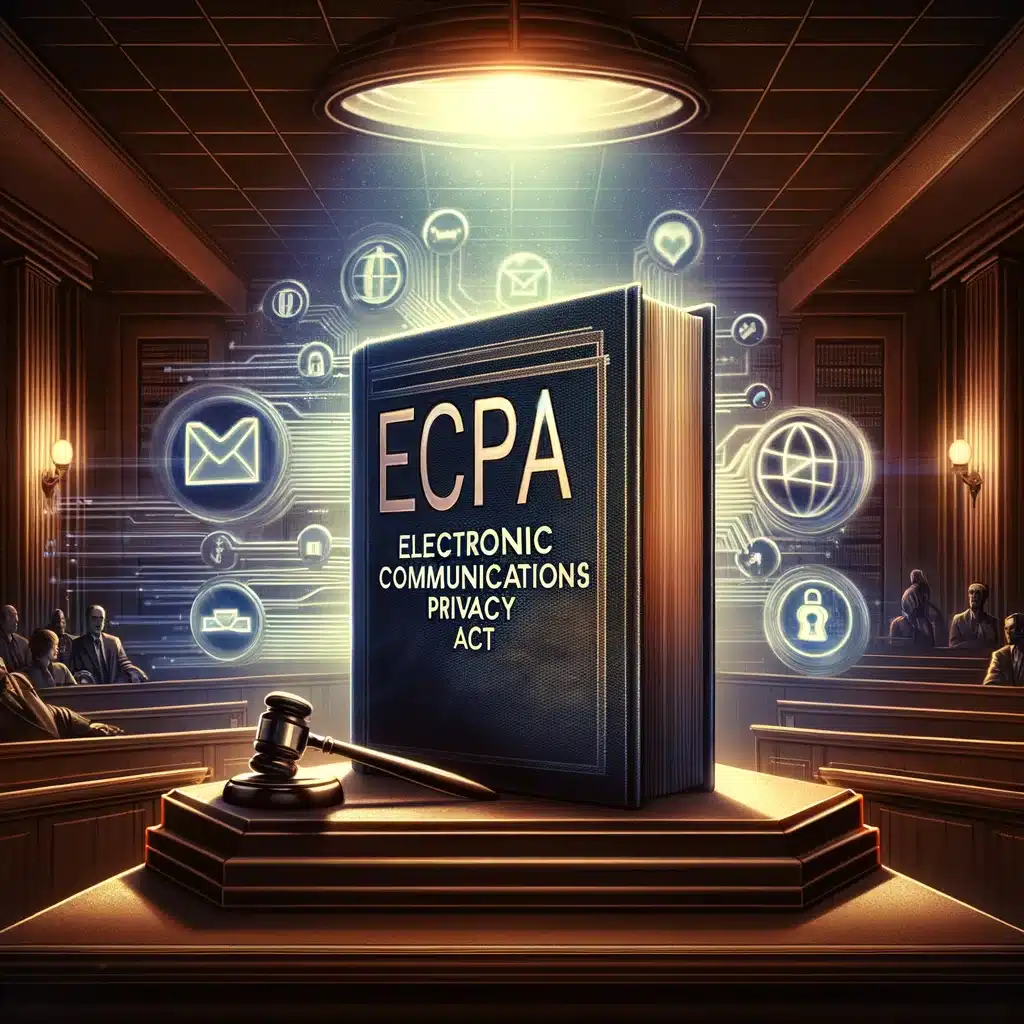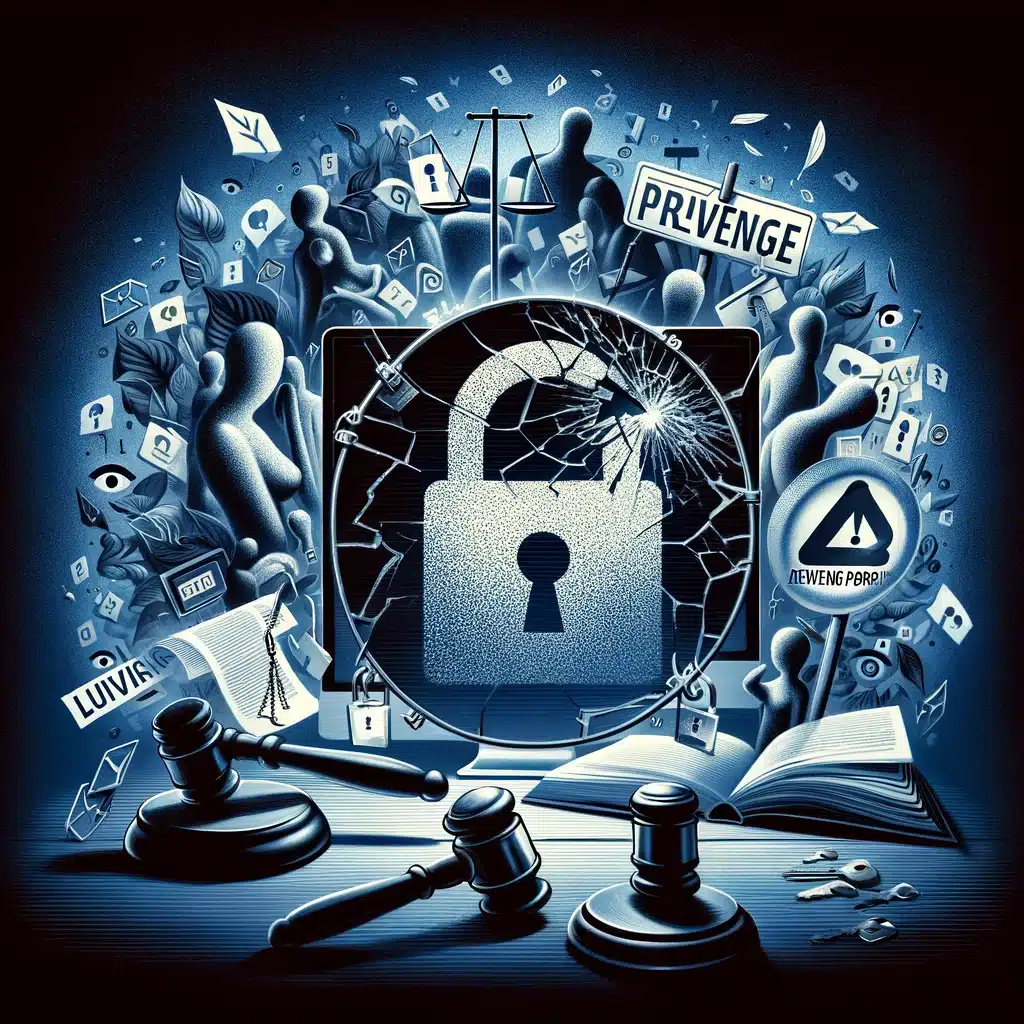In the modern age of marriage, where love, trust, and suspicion often intertwine, the question of whether using a keylogger is illegal in Texas divorce proceedings becomes particularly poignant. Imagine you’re navigating the stormy seas of a divorce, channeling your inner Sherlock Holmes in a complex, real-life mystery. Yet, your tools for uncovering the truth involve not a magnifying glass but a computer, accompanied by a nagging suspicion that your soon-to-be ex-partner might be concealing something online.
Short Answer: Is employing a keylogger to secretly monitor your spouse’s online activities legally permissible during a divorce in Texas? Let’s delve into the intricacies of the digital realm to unearth the facts!
But, before we proceed, brace yourselves, esteemed readers, for the exploration of keyloggers—those covert digital devices designed to record every keystroke made on a computer—opens up a veritable Pandora’s box of legal quandaries and moral dilemmas. So, pour yourself a cup of tea (or perhaps opt for something with a bit more kick), cozy up in your favorite virtual nook, and embark with us on this intriguing expedition through the shadowy domain of matrimonial surveillance in the Lone Star State. Believe us, every keystroke of this journey is bound to be riveting!

The Digital Dilemma: Is a Keylogger Illegal in Texas Divorce?
Introduction: Navigating the Digital Battlefield in Divorce
As you embark on the challenging journey of divorce, the desire to gain an informational edge over your spouse is both natural and strategic. From the moment your divorce case is filed, it may feel as though you’ve entered an arena where you and your spouse are pitted against each other like modern-day gladiators, armed with nothing but the knowledge each of you holds. Your attorneys engage in a tactical dance, leveraging this information to tilt the balance in favor of your interests, with critical matters such as child custody and division of community property hanging in the balance.
In this digital era, one of the most effective ways to gather intelligence about your spouse’s activities is by monitoring their online and digital behaviors. With the ubiquity of smartphones, computers, laptops, tablets, and smartwatches, technology has become intertwined with our daily routines. Whether organizing our lives, pursuing health goals, or searching for the best local cuisine, technology serves as our guide, potentially becoming a pivotal element in your divorce if internet usage, instant messaging, or social media activity yields relevant evidence.
The Legal Gray Area: Obtaining Evidence Through Digital Snooping
However, the legality of how such evidence is acquired is fraught with complexity. The line between legally acceptable evidence gathering and invasive snooping is blurred. Did you stumble upon incriminating messages because your spouse carelessly left their laptop open, or did you actively snoop to uncover these interactions? The methods employed to use digital devices for evidence gathering can significantly impact the outcome of your divorce, raising ethical and legal questions.
Is a Keylogger Illegal in Texas Divorce? Unveiling the Truth
Utilizing keyloggers to track every keystroke made on a computer presents a contentious issue, especially in the context of Texas divorce proceedings. Keyloggers, by their very nature, are designed to operate covertly, capturing information without the user’s knowledge or consent. This raises significant legal considerations, as the boundaries of privacy, consent, and lawful evidence collection come into play.
In today’s discussion, brought to you by the Law Office of Bryan Fagan, we delve into the intricate relationship between technology, espionage, information gathering, and the internet in divorce cases. We aim to shed light on the critical question: “Is a Keylogger Illegal in Texas Divorce?” and explore the legal and ethical implications of using such tools to gain an advantage in your divorce proceedings.
Should you have any queries regarding the information presented in this discussion, we encourage you to reach out to our office. By scheduling a complimentary consultation with one of our experienced family law attorneys, you can gain personalized advice and insights tailored to your unique situation, ensuring you navigate the digital aspects of your divorce with legality and integrity at the forefront.
Is a Keylogger Illegal in Texas Divorce? Navigating Electronic Surveillance and Privacy
Electronic Spyware and Hacking During a Divorce: Don’t Do It
In the midst of a divorce in Texas, the temptation to use electronic surveillance, such as keyloggers, to spy on a spouse’s private communications can be strong. This drive, often fueled by a desire for evidence or closure, must be tempered with an understanding of the significant legal and ethical boundaries in place.

The Federal Electronic Communications Privacy Act (ECPA) and Its Implications
The ECPA delineates strict regulations against the unauthorized interception and disclosure of electronic communications. Activities prohibited under this act include:
- Telephone wiretaps
- Email and chat log interceptions
- Voicemail access
- Streaming video capture
- Recording private conversations
The law underscores the necessity of consent, illustrating that activities such as using keyloggers without authorization are not only unethical but also carry potential criminal and civil repercussions.
The Fine Line Between Discovery and Violation
Discovering a spouse’s password or employing a keylogger might seem like serendipitous sleuthing, yet these actions are often construed as hacking, a serious legal infringement. The presence of a password or security measure inherently suggests an expectation of privacy, highlighting the legal jeopardy involved in unauthorized access methods.
Monitoring Children’s Electronics: A Legal Perspective
While installing spyware for monitoring a child’s online activities is legally permissible to ensure their safety, extending this surveillance to spy on a co-parent crosses legal boundaries. Transparency about such monitoring installations is critical to prevent accusations of misuse.
Ethical Evidence Gathering
Should you believe that your spouse’s digital devices contain crucial evidence, resist the urge to investigate surreptitiously. Improper evidence collection can lead to its dismissal in court. Instead, consult with a seasoned divorce attorney to explore legal avenues for obtaining the necessary information.
Permissible Activities
- Engaging with publicly available social media content
- Reviewing personal messages sent to you
- Accessing joint accounts where you hold primary ownership
- Reviewing footage from home surveillance systems
Legal Steps for Concerned Spouses
Facing concerns over a co-parent’s actions, particularly regarding children’s welfare or court order compliance, warrants legal intervention. Protective or restraining orders may be necessary, and a competent divorce attorney can provide the guidance required.
The Digital Surveillance Evolution: Navigating Spousal Tracking Technologies
The Rapid Advancements in Surveillance Technology
In recent years, the technology landscape, especially in the realm of surveillance or what some might call the “spying” industry, has undergone rapid evolution. This advancement has significantly enhanced the capabilities to monitor the online activities of individuals, catering to the curiosity of employers, spouses, and parents alike. The digital age has democratized access to sophisticated tracking tools, making it easier than ever to keep tabs on someone’s digital footprint.

Gone are the days when surveillance tools like hidden cameras, keyloggers, GPS tracking devices, drones, voice recorders, and spyware were exclusive to the realms of professional investigators or the financially well-off. Today, virtually anyone with the means and motive can deploy these technologies to monitor the digital behaviors of others. Among these tools, keyloggers hold a particular intrigue for those navigating the turbulent waters of divorce. By recording every keystroke made on a computer, keyloggers can unveil communications that might be pivotal in gaining an upper hand in divorce proceedings, be it messages to a new partner or emails to a divorce lawyer.
Unpacking the Impact of Digital Surveillance Tools
The insights provided by these surveillance tools into a spouse’s digital behavior can be remarkably comprehensive. For instance, a GPS tracker can pinpoint the exact location of your spouse, provided the device’s location services are accurate. It’s not just about knowing where they are; these trackers can also reveal the route taken to reach a destination, information readily available on smartphones and smartwatches for various purposes, including fitness tracking. Furthermore, many GPS devices offer functionality to notify you when your spouse arrives at or departs from a specific location, with applications enabling real-time alerts for these movements.
Is a Keylogger Illegal in Texas Divorce? Understanding the Legal Landscape
However, the question arises: “Is a Keylogger Illegal in Texas Divorce?” This query touches on the critical intersection of legality, ethics, and privacy. While the allure of gaining insight into a spouse’s digital interactions is undeniable, the legal implications of using such surveillance tools, particularly keyloggers, in the context of Texas divorce proceedings warrant thorough examination. The deployment of keyloggers and similar surveillance technologies raises significant legal considerations, from the violation of privacy rights to the admissibility of gathered evidence in court.
As we delve into the complex dynamics of digital surveillance in divorce, it’s imperative to navigate this territory with an informed understanding of Texas law and the ethical considerations at play. For individuals contemplating the use of surveillance technologies to gain an advantage in divorce, seeking legal counsel is crucial. Consulting with a legal professional can provide clarity on the legal standing of using keyloggers and other surveillance tools, ensuring that actions taken do not inadvertently cross legal boundaries or compromise the integrity of the divorce proceedings.
Understanding the Dual Nature of iPhone Apps in Divorce Surveillance
Everyday iPhone Apps: A Cloak for Surveillance?
On the surface, many iPhone apps appear entirely benign, designed to enhance convenience and connectivity in our daily lives. However, beneath this innocuous facade, certain apps harbor capabilities that can be repurposed for more surreptitious activities, particularly in the context of marital disputes. For instance, the “Find My Friends” app, a staple on many devices for sharing locations among acquaintances, can take on a different role when used to monitor the movements of a spouse. While the app offers users control over their privacy, such as the ability to hide their location or remove individuals from their friends list, it underscores the potential for technology to be used in ways not initially intended by the developers.

Similarly, the ubiquity of voice recording apps has transformed smartphones into portable surveillance devices. Gone are the days of purchasing a physical voice recorder; now, capturing conversations is as simple as tapping a button on your phone. In Texas, the law permits recording as long as one party in the conversation is aware of the recording, making it legally acceptable for you to record conversations with your spouse if you’re participating and aware.
The “Find My Phone” app serves the practical purpose of locating a misplaced phone, whether lost in the couch cushions or forgotten at a café. However, like its counterpart for finding friends, this app can also be repurposed for tracking a person’s location through their phone. Users must be mindful of the privacy settings and access permissions of these apps to prevent unwarranted tracking, emphasizing the importance of securing personal devices against unintended surveillance.
Is a Keylogger Illegal in Texas Divorce? Exploring the Legal Implications
Amidst the discussion of apps and their potential misuse in tracking or recording a spouse’s activities, the question of legality comes to the forefront, particularly regarding more invasive tools like keyloggers. “Is a Keylogger Illegal in Texas Divorce?” This question captures the essence of the legal and ethical debate surrounding digital surveillance in marital disputes. Keyloggers, which log every keystroke made on a device, represent a significant escalation from the passive tracking offered by location-sharing apps, entering the realm of actively monitoring and recording a person’s digital interactions without their knowledge.
The use of such surveillance technologies, while potentially revealing, navigates a fine line between legal evidence gathering and violation of privacy laws. The distinction hinges on consent, the expectation of privacy, and the intended use of the collected data. Individuals considering the use of keyloggers or similar surveillance tools in the context of a Texas divorce must tread carefully, understanding the legal framework that governs electronic monitoring and the potential consequences of overstepping these boundaries.
While iPhone apps and other digital tools offer unprecedented access to information and connectivity, their role in divorce proceedings invites scrutiny. The dual nature of these technologies—as aids in daily life and potential instruments of surveillance—highlights the complex interplay between technology, privacy, and the law. For those navigating the murky waters of divorce in Texas, legal advice becomes invaluable in distinguishing between acceptable use of technology and actions that could jeopardize the legal standing of their case.
Is a Keylogger Illegal in Texas Divorce? Understanding the Legal Landscape
The Electronic Communications Privacy Act (ECPA) and Its Implications
Under the Electronic Communications Privacy Act (ECPA), protection is extended to oral, written, and electronic communications at various stages: during transmission, in transit, and when stored on electronic devices. This broad scope includes, but is not limited to, telephone conversations and emails. A critical aspect of the ECPA is its prohibition against the unauthorized interception of communications. Specifically, the act makes it illegal to intercept any form of communication between parties without their consent.

In Texas, the legal landscape regarding recording conversations adds a layer of complexity. As a one-party consent state, Texas law permits the recording of phone calls and other communications if one participant in the conversation consents to the recording. This contrasts with the federal stipulation requiring consent from all parties involved, highlighting a nuanced area where state and federal laws intersect. Recording conversations, particularly in sensitive situations such as during a divorce, necessitates careful consideration and legal guidance to navigate potential legal and personal risks.
Computer Crime Laws in Texas: Navigating Unauthorized Access
Texas’s stance on computer-related offenses is clear, with strict laws against unauthorized access to computer data. According to the Texas Penal Code, Section 33.02, accessing a computer, network, or system without the owner’s consent is a punishable offense. The law emphasizes that consent must be informed and specific to the access’s purpose, invalidating any consent obtained through deception or used beyond its intended scope.
This legal framework raises significant concerns for individuals considering the use of keyloggers or similar tools to spy on a spouse’s computer activities during a divorce. Attempting to access a spouse’s computer without explicit permission—whether by guessing passwords or using surveillance software—falls under unauthorized access. Such actions not only breach personal trust but also violate Texas’s computer crime laws, potentially leading to legal repercussions.
The Importance of Digital Ethics and Legal Compliance
The temptation to bypass digital privacy through methods like password guessing or the deployment of keyloggers underscores the critical importance of digital ethics and the need for regular password updates. Utilizing complex, unique passwords for different accounts is a basic yet effective strategy to safeguard digital privacy and integrity.
When navigating the intricacies of divorce proceedings in Texas, understanding the legal boundaries around electronic surveillance, including the use of keyloggers, is paramount. The intersection of federal and state laws presents a complex legal landscape that requires careful navigation. Individuals are advised to seek legal counsel before undertaking any form of electronic monitoring or accessing a spouse’s computer systems, ensuring compliance with both the ECPA and Texas computer crime laws. This approach not only upholds legal standards but also respects the privacy and dignity of all parties involved.
Is a Keylogger Illegal in Texas Divorce? Navigating the Complexities of Digital Privacy
Understanding the Legal Implications of “Revenge Porn”
In the digital age, the privacy of our most personal moments is increasingly vulnerable. The phenomenon known as “revenge porn”—the distribution of intimate photos or videos without consent—represents a serious invasion of privacy. In Texas, engaging in such behavior is not only morally reprehensible but also illegal. The law specifically prohibits the use of intimate material, acquired during the course of a marriage, for revenge or humiliation. Whether shared privately among acquaintances or posted on public platforms, the legal system in Texas takes a firm stance against this violation of privacy, offering victims recourse to protect their rights and dignity.

GPS Tracking: Legal Boundaries and Ethical Considerations
When it comes to GPS tracking, Texas law provides a specific framework. It’s legal to track a vehicle with GPS if you own it or if the cell phone plan is in your name, thus allowing for the monitoring of calls and other data. However, this legal allowance comes with its caveats, especially in the context of a divorce. Should a spouse challenge the admissibility of evidence gathered through GPS tracking, claiming it was obtained in violation of Texas law, the court may exclude such evidence. Furthermore, the ethical implications of how this information is used—particularly in regards to parenting and decision-making in the best interests of children—cannot be overlooked.
The Key Question: Is a Keylogger Illegal in Texas Divorce?
In the realm of divorce proceedings, the legality of using keyloggers to monitor a spouse’s computer activity becomes a pertinent question. Given the strict regulations around unauthorized access to digital information, employing a keylogger without consent could potentially violate Texas computer crime laws. The implications of such actions extend beyond legal consequences, impacting ethical considerations and trust within the family dynamic.
The intersection of technology and privacy rights in Texas divorce cases presents a complex legal landscape. From “revenge porn” to GPS tracking and the use of keyloggers, individuals must navigate these issues with an understanding of both the legal and ethical boundaries. It’s crucial for anyone facing these challenges to seek comprehensive legal advice to ensure that their actions remain within the confines of the law, while also considering the broader impact on personal relationships and family welfare.
Is a Keylogger Illegal in Texas Divorce? The Role of Electronic Evidence in Legal Proceedings
Navigating the Digital Evidence Landscape
In the midst of a Texas divorce, grasping the significance of electronic evidence becomes paramount. “Spying on your spouse – What to know in a Texas Divorce” emphasizes the critical role that the digital traces left by you and your spouse play in affecting the outcome of the proceedings. As we become increasingly integrated with the digital world, the likelihood of electronic evidence coming to the forefront in a divorce escalates. Being prepared for the revelations that the digital landscape may unveil is an essential strategy for ensuring your legal representation can navigate your case with precision and skill.

Emails are a prime example of where valuable information can be found. They can reveal personal communications with family, friends, and even potential romantic interests. To safeguard your privacy, regular password changes and additional security measures, such as two-factor authentication, are advisable. These steps can deter unauthorized access to your email, potentially limiting your spouse’s ability to use your communications against you.
Social Media: A Double-Edged Sword
Social media platforms serve as a rich source of evidence, both favorable and unfavorable, in divorce cases. It’s essential to exercise caution in your social media interactions, especially once divorce proceedings are underway. The law prohibits the deletion of any content that could serve as evidence, framing such actions as evidence tampering. Before making any changes to your digital footprint, consulting with your attorney is paramount to avoid legal pitfalls.
The question of whether engaging in social media is beneficial becomes more complex in the midst of a divorce. For many, social media is a harmless pastime, but when facing legal challenges, its disadvantages may outweigh the benefits. It’s advisable to limit social media activity during this time to prevent potential negative impacts on your case.
Furthermore, the role of social media in marital discord cannot be underestimated. Increasingly, online interactions are cited as contributing factors to relationship breakdowns, leading to divorce. Engaging with social media can blur the boundaries between online behaviors and real-world consequences, potentially endangering your marriage.
Is a Keylogger Illegal in Texas Divorce?
The use of keyloggers, devices or software that record keystrokes, raises significant legal and ethical questions. In Texas, deploying a keylogger to monitor a spouse without their consent could be seen as an invasion of privacy and potentially fall foul of computer crime laws. The legality of using such tools in divorce proceedings is a gray area, requiring careful consideration and legal advice.
As electronic evidence becomes increasingly prevalent in divorce cases, understanding its implications is essential. Protecting your digital privacy and being mindful of your online behavior are key steps in preparing for a divorce. Moreover, the question of whether using surveillance tools like keyloggers is legal in Texas underscores the need for guidance from a knowledgeable attorney. Navigating the complexities of electronic evidence requires a strategic approach to ensure that your rights are protected and your case is presented effectively.
Is a Keylogger Illegal in Texas Divorce? Understanding Digital Evidence in Family Law
Navigating the Rules of Evidence with Digital Information
In the realm of family law, the introduction of digital information as evidence during legal proceedings requires an intricate knowledge of evidentiary rules. When it comes to “The Dirty Trick of Spousal Spying in a Texas Divorce,” the authenticity and relevance of digital evidence like documents, messages, or photos become critically important.
Authenticity is essential for verifying the legitimacy of the evidence presented, whereas relevance is key to establishing its importance to the case at hand. While proving the authenticity of such evidence can present challenges, demonstrating its relevance to the specifics of a Texas divorce, especially in the context of spousal spying, often encounters fewer obstacles.

To authenticate digital evidence, attorneys might rely on testimony from external witnesses or compare the item in question with previously verified materials. Public records and circumstantial evidence can also serve to substantiate the legitimacy of digital data. This rigorous process ensures that only genuine and pertinent information is considered by the court.
The Digital World in Divorce Cases: The Need for an Advocate
As our personal and digital lives become increasingly entangled, divorce cases have evolved to reflect this reality. For individuals who are active online or whose spouses are, the aspect of managing digital evidence becomes crucial. This includes the collection, analysis, and admission of such evidence in court. Partnering with a seasoned family law attorney is essential for navigating these complexities effectively, ensuring that your rights are protected and your position is accurately represented.
The Legality of Keyloggers in Texas Divorce Cases
When it comes to gathering evidence in divorce proceedings, the temptation to use keyloggers for monitoring a spouse’s computer activities is a topic of legal and ethical debate. Keyloggers, by recording every keystroke, can provide a wealth of information but raise significant privacy concerns. The question of legality hinges on issues of consent, privacy rights, and the potential for unauthorized access under Texas law.
In Texas, the use of keyloggers in a divorce context is fraught with legal challenges. Without explicit consent, deploying a keylogger could be interpreted as a violation of privacy and potentially fall under statutes related to unauthorized access to electronic information. This area of law emphasizes the importance of understanding both the ethical considerations and legal boundaries before engaging in any form of electronic surveillance or evidence gathering.
In the age of digital communication, understanding how to navigate the admissibility of electronic evidence is critical in divorce proceedings. The question of “Is a keylogger illegal in Texas divorce?” underscores the complex intersection of technology, privacy, and the law. As divorce cases increasingly involve digital evidence, having skilled legal representation becomes indispensable. An experienced attorney can guide you through the process of collecting and presenting digital evidence, ensuring that it adheres to the stringent requirements of authenticity and relevance, all while navigating the legalities of surveillance tools like keyloggers.
Is a Keylogger Illegal in Texas Divorce? Exploring Legal, Ethical, and Cybersecurity Concerns
Legal and Ethical Considerations of Using Keyloggers
Keyloggers, which are capable of capturing every keystroke made on a computer, find themselves at the heart of a contentious debate, particularly in the delicate context of divorce proceedings. In Texas, the right to privacy is a cornerstone of legal protections afforded to individuals, asserting that everyone is entitled to a reasonable expectation of privacy, even in the privacy of their own home. This legal stance underlines the contentious nature of installing a keylogger on a computer used by your spouse without obtaining their explicit consent. Such actions not only contravene established privacy standards but can also lead to significant legal repercussions. This brings us to the critical question, “Why is Recording My Spouse Illegal?” highlighting the legal and ethical complexities surrounding the use of surveillance tools like keyloggers in the setting of a Texas divorce.

Impact on Marital Relationships
The ramifications of using surveillance technologies like keyloggers extend beyond the courtroom into the very fabric of marital relationships. Trust, a cornerstone of any partnership, can be severely damaged by the awareness of being monitored. The introduction of surveillance measures into a relationship often leads to an atmosphere of mistrust and paranoia, potentially exacerbating the issues that may have led to the consideration of divorce in the first place.
Alternatives to Surveillance
For couples navigating the treacherous waters of suspicion and marital discord, transparency and openness offer a healthier path forward. Engaging in open dialogue, seeking the assistance of couples counseling, or consulting legal professionals for guidance provides avenues to address concerns constructively. These strategies emphasize the importance of maintaining respect and integrity, even in the face of relationship breakdowns, avoiding the ethical and legal pitfalls associated with covert surveillance methods like keyloggers.
Cybersecurity Risks Associated with Keyloggers
Beyond ethical and legal concerns, the deployment of keyloggers introduces significant cybersecurity risks. Such tools can inadvertently become gateways for hackers, leading to data breaches, identity theft, and the loss of sensitive personal information. The intent to monitor a spouse’s activities could inadvertently compromise the digital safety of both parties, highlighting the unintended consequences that may arise from the use of surveillance technology in a divorce context.
When considering the question, “Is a keylogger illegal in Texas divorce?” it’s essential to weigh not only the legal implications but also the ethical considerations and cybersecurity risks involved. While the pursuit of evidence is a critical component of divorce proceedings, the means by which this evidence is obtained must be carefully considered. Respect for privacy, the sanctity of marital trust, and the protection of personal data are paramount, urging individuals to consider alternative, more open methods of resolving their marital disputes.
Is a Keylogger Illegal in Texas Divorce? Delving Into the Psychological, Legal, and Cultural Impacts
Psychological Effects of Surveillance in Marital Relationships
The psychological toll of being subjected to surveillance by a spouse, including wiretapping, GPS tracking, and the use of keyloggers, is immense and impactful. Those who find themselves under such scrutiny during a Texas divorce may feel their privacy deeply invaded, triggering paranoia, emotional distress, and a profound sense of violation. “Could your house be “Wiretapping, GPS Tracking and Divorce in Texas” highlights the severe implications of such surveillance tactics, which not only exacerbate existing marital tensions but can also permanently erode the trust and emotional connection between partners. The consequences of these surveillance activities, particularly within the context of a Texas divorce, can inflict lasting psychological damage, undermining the affected individual’s capacity to trust and feel secure in their subsequent relationships.

Legal Recourse for Victims of Unauthorized Surveillance
Victims of unauthorized surveillance in Texas, including those subjected to keyloggers by a spouse, have legal avenues available to address their grievances. The law in Texas provides mechanisms such as restraining orders and civil lawsuits for invasion of privacy, offering victims a path to seek redress and protection. These legal measures underscore the seriousness with which Texas law views the unauthorized invasion of personal privacy, ensuring that individuals have recourse to defend their rights and recover from the harm suffered.
Cultural and Societal Perspectives on Privacy and Surveillance
The use of surveillance tools like keyloggers in the context of a Texas divorce touches upon broader cultural and societal debates about privacy, trust, and the boundaries of acceptable behavior within relationships. Attitudes towards surveillance, particularly within intimate relationships, vary greatly across different cultures and communities. Some may justify the use of surveillance as a means to uncover deceit or protect oneself from harm, while others view it as an unforgivable breach of trust and personal space. This divergence reflects the complex interplay between technological capabilities, ethical considerations, and societal values related to privacy and personal autonomy.
The question, “Is a keylogger illegal in Texas divorce?” opens up a multifaceted discussion encompassing not only the legal ramifications but also the psychological impact and cultural considerations of surveillance in marital disputes. As technology continues to evolve, the implications of using tools like keyloggers in personal relationships challenge us to reconsider our notions of privacy, trust, and the legal frameworks designed to protect them. For individuals navigating these difficult waters, understanding the full spectrum of consequences—legal, psychological, and societal—is crucial in making informed decisions that align with their values and legal rights.
Is a Keylogger Illegal in Texas Divorce? Examining the Intersection of Technology and Marital Law
Technological Advancements and Future Trends in Surveillance
In the midst of the digital era, technological progress has brought forward advanced surveillance tools, fundamentally altering the landscape of privacy and security in marital dynamics. This progression necessitates a deep dive into the impact of surveillance technologies, such as keyloggers, on both legal proceedings and the nature of marital bonds. Amidst this backdrop, the query “Could your house be “bugged” during a divorce case?” gains prominence, especially in regions like Texas where the legality of using keyloggers in divorce cases is a subject of ongoing debate. As digital evidence becomes more prevalent and surveillance practices evolve, it’s crucial for both individuals embroiled in divorce and legal professionals to stay abreast of these developments. Doing so ensures adherence to the changing legal frameworks and ethical norms.

Communication and Trust-Building Strategies
In the face of technological challenges, reinforcing the foundations of communication, trust, and mutual respect becomes crucial. For couples navigating the complexities of their relationships, especially in the context of potential divorce proceedings, prioritizing open dialogue and empathy is key. By embracing transparency and seeking to understand each other’s perspectives, couples can address issues constructively, potentially averting the need for invasive surveillance methods like keyloggers. Professional counseling and mediation can also play a vital role in facilitating these discussions, offering a neutral ground for resolving conflicts.
Seeking Professional Guidance and Support
For those confronted with dilemmas surrounding surveillance, privacy, and trust within the framework of a divorce, professional guidance is indispensable. Legal experts specializing in family law can provide clarity on the legality and implications of using surveillance tools, such as keyloggers, in Texas divorce cases. Simultaneously, therapists and support groups offer emotional support and coping strategies, helping individuals navigate the personal challenges that accompany marital dissolution. Engaging with these resources empowers individuals to make informed decisions that uphold their legal rights and emotional well-being.
The rapid pace of technological advancement brings to the fore critical questions about privacy, trust, and legal ethics in marital relationships. “Is a Keylogger Illegal in Texas Divorce?” is a question that encapsulates the broader issues at play, highlighting the need for ongoing education and adaptation to technological trends. As individuals and society grapple with these developments, the importance of communication, trust, and professional guidance cannot be overstated. Together, these elements form the cornerstone of navigating the complexities of modern relationships and legal proceedings with integrity and respect.
Conclusion:
And there you have it, dear readers! We’ve journeyed through the highs and lows of digital espionage in the wild world of Texas divorce, armed with nothing but our wits and a healthy dose of legal savvy.
But before we bid adieu, let’s pause for a moment to reflect on the lessons learned. Like a seasoned detective closing a case, we’ve uncovered the importance of trust, communication, and integrity in navigating the choppy waters of marital discord.
So, whether you find yourself entangled in the web of divorce proceedings or simply curious about the legal intricacies of digital snooping, remember this: In the game of love and law, it’s not just about uncovering secrets—it’s about preserving dignity, respect, and human connection along the way.
As you venture forth into the digital landscape of relationships and legalities, may you do so with grace, grit, and perhaps a touch of Sherlockian flair. After all, life’s greatest mysteries are meant to be solved, one keystroke at a time! Cheers to you, intrepid readers, and may your future endeavors be filled with love, laughter, and a whole lot of legal know-how. Until next time, keep sleuthing with style!
Keylogging FAQ
What is the punishment for keylogging?
The punishment for keylogging varies by jurisdiction but can include fines, imprisonment, or both, especially if it’s used for malicious purposes like theft of personal information.
What is a keylogger considered as a piece of?
A keylogger is considered a piece of software or a hardware device designed to record keystrokes made by a user on a computer keyboard, often without the user’s knowledge or consent.
What is the difference between spyware and keyloggers?
Spyware is a broad category of malware designed to spy on user activity and collect information without consent. Keyloggers specifically record keystrokes and are a type of spyware focused on capturing typed information.
Can someone track my keystrokes?
Yes, if a keylogger software or hardware device has been installed on your computer, someone can track your keystrokes to capture passwords, messages, and other sensitive information.
What is the legality of keylogger?
The legality of using a keylogger depends on the jurisdiction and the context in which it’s used. Generally, using keyloggers without the knowledge and consent of the person being monitored is illegal.
Is keylogger a cyber crime?
Using a keylogger for malicious purposes, such as stealing personal information, can be considered a cyber crime under various laws aimed at protecting digital privacy and security.
What is a real life example of a keylogger?
A real life example of a keylogger is when an employee installs a keylogger on company computers to steal confidential information, or when a person installs it on a partner’s computer to spy on their communications.
Are keyloggers detectable?
Yes, keyloggers can be detected by antivirus and anti-malware software, especially if they are known types of keylogging software. However, sophisticated keyloggers may evade detection without updated security measures.
Bryan Fagan, a native of Atascocita, Texas, is a dedicated family law attorney inspired by John Grisham’s “The Pelican Brief.” He is the first lawyer in his family, which includes two adopted brothers. Bryan’s commitment to family is personal and professional; he cared for his grandmother with Alzheimer’s while completing his degree and attended the South Texas College of Law at night.
Married with three children, Bryan’s personal experiences enrich his understanding of family dynamics, which is central to his legal practice. He specializes in family law, offering innovative and efficient legal services. A certified member of the College of the State Bar of Texas, Bryan is part of an elite group of legal professionals committed to ongoing education and high-level expertise.
His legal practice covers divorce, custody disputes, property disputes, adoption, paternity, and mediation. Bryan is also experienced in drafting marital property agreements. He leads a team dedicated to complex family law cases and protecting families from false CPS allegations.
Based in Houston, Bryan is active in the Houston Family Law Sector of the Houston Bar Association and various family law groups in Texas. His deep understanding of family values and his professional dedication make him a compassionate advocate for families navigating Texas family law.



